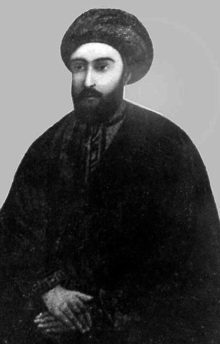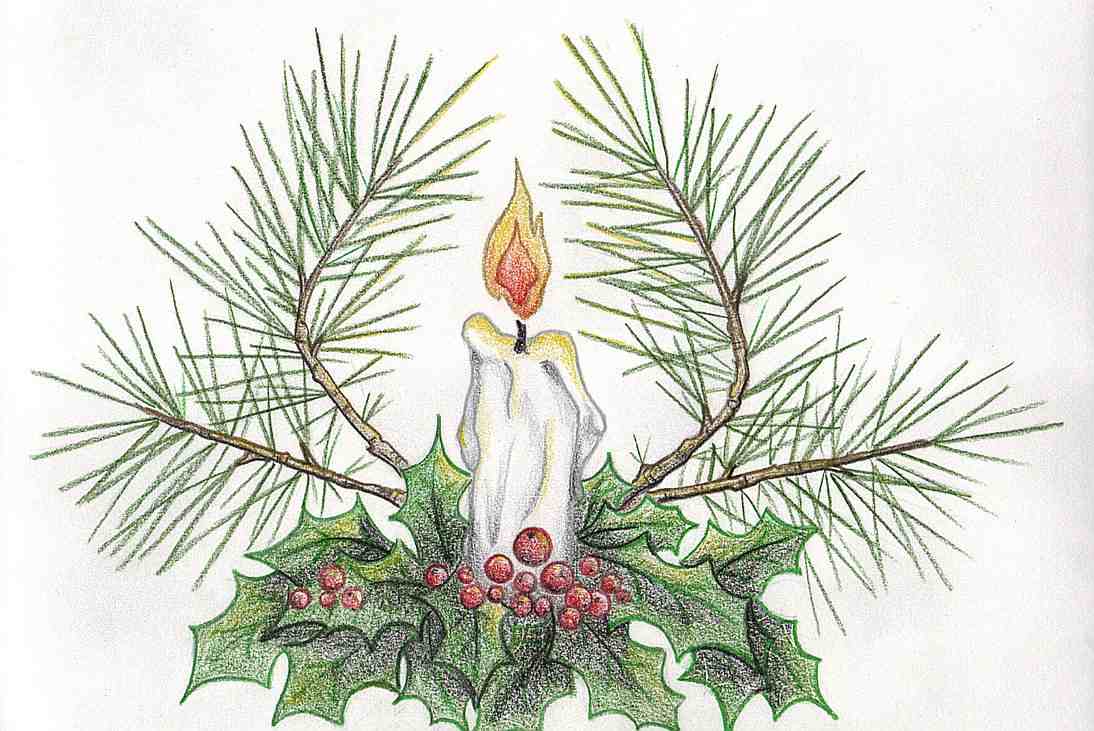Sufi
 Every year during the evening of May 22 and May 23, Baha’is celebrate the Declaration of The Bab with prayers, storytelling, and reflections. It is one of the nine holy days when work is suspended. The holiday begins two hours and eleven minutes after sunset on May 22, which is the exact time at which the Báb declared himself.
Every year during the evening of May 22 and May 23, Baha’is celebrate the Declaration of The Bab with prayers, storytelling, and reflections. It is one of the nine holy days when work is suspended. The holiday begins two hours and eleven minutes after sunset on May 22, which is the exact time at which the Báb declared himself.
The Báb was born Siyyid Ali-Muhammad, in Shiraz, Iran. Born in 1819 into a family of merchants and traders, raised by his maternal uncle after the premature death of his father in 1826, a mystic descended from many generations of mystical Sufis, known from childhood for his wisdom, intelligence and humility, The Bab would start a religious movement unparalleled in history.
During the early evening of May 22, 1844, Siyyid Ali Muhammad declared his mission as The Bab to an ardent seeker named Mulla Husayn. He took the name “Báb,” which means “gate” or “door” in Arabic to emphasize his role as the portal through which the Revelation of God would enter.
Younger than Jesus when he declared His revelation, The Bab started, on that day, a new era of faith–and the renewal of the eternal promise of religion itself. Soon many thousands of people became followers of The Bab. He upended the corrupt practices of the Persian clergy, challenged tradition by abrogating the laws of the past and declared that He had come, like John the Baptist, as the herald for another Manifestation of God, the Promised One of All Ages, the founder of a universal and unifying world religion—Baha’u’llah, the prophet and founder of the Baha’i Faith.
The effect of the Declaration of a Manifestation of God is impossible for us to understand. ‘Abdu’l‑Bahá explains it as follows.
The appearances of the Manifestations of God are the divine springtime. When Christ appeared in this world, it was like the vernal bounty; the outpouring descended; the effulgences of the Merciful encircled all things; the human world found new life. Even the physical world partook of it. The divine perfections were upraised; souls were trained in the school of heaven so that all grades of human existence received life and light.
Then by degrees these fragrances of heaven were discontinued; the season of winter came upon the world; the beauties of spring vanished; the excellences and perfections passed away; the lights and quickening were no longer evident; the phenomenal world and its materialities conquered everything; the spiritualities of life were lost; the world of existence became like unto a lifeless body; there was no trace of the spring left. Continue reading
 Mawlid (Arabic: مَولِد النَّبِي , “Birth of the Prophet”) is the observance of the birthday of the Islamic prophet Muhammad which is celebrated often on the 12th day of Rabi’ al-awwal, the third month in the Islamic calendar. The 12th Day of Rabi’ al-awwall is the most popular date from a list of many dates that are reported as the birth date.
Mawlid (Arabic: مَولِد النَّبِي , “Birth of the Prophet”) is the observance of the birthday of the Islamic prophet Muhammad which is celebrated often on the 12th day of Rabi’ al-awwal, the third month in the Islamic calendar. The 12th Day of Rabi’ al-awwall is the most popular date from a list of many dates that are reported as the birth date.
In some countries, such as Egypt and Sudan, Mawlid is used as a generic term for the celebration of birthdays of local Sufi saints and not only restricted to the observance of the birth of Muhammad. Around 3,000 Mawlid celebrations are held each year. These festivals attract an international audience, with the largest one in Egypt attracting up to three million people honoring Ahmad al-Badawi, a local 13th-century Sufi saint.
Mawlid is recognized as a national holiday in most of the Muslim-majority countries of the world except Saudi Arabia and Qatar.
Along with being referred to as the celebration of the birth of Muhammad, the term Mawlid also refers to the ‘text especially composed for and recited at Muhammad’s nativity celebration’ or “a text recited or sung on that day”.
The date of Muhammad’s birth is a matter of contention since the exact date is unknown and is not definitively recorded in the Islamic traditions. Among the most recognizable dates, Sunni Muslims believe the date to have been on the twelfth of Rabi’ al-awwal, whereas Shi’a Muslims believe the date to have been on the seventeenth.
Among Muslim scholars, the legality of Mawlid “has been the subject of intense debate” and has been described as “perhaps one of the most polemical discussions in Islamic law”. Traditionally, most Sunni and nearly all of the Shia scholars have approved of the celebration of Mawlid, while Wahhabi and Ahmadiyya scholars oppose the celebration.
Examples of historic Sunni scholars who permitted the Mawlid include the Shafi’i scholar Al-Suyuti (d 911 A.H.) who stated that:
My answer is that the legal status of the observance of the Mawlid – as long as it just consists of a meeting together by the people, a recitation of apposite parts of the Qur’an, the recounting of transmitted accounts of the beginning of (the biography of) the Prophet – may God bless him and grant him peace – and the wonders that took place during his birth, all of which is then followed by a banquet that is served to them and from which they eat – is a good innovation (bid’a hasana), for which one is rewarded because of the esteem shown for the position of the Prophet – may God bless him and grant him peace – that is implicit in it, and because of the expression of joy and happiness on his – may God bless him and grant him peace – noble birth.
The Shafi’i scholar Ibn Hajar al-Asqalani (d 852 A.H.) too approved of the Mawlid and states that:
As for what is performed on the day of the Mawlid, one should limit oneself to what expresses thanks to God, such as the things that have already been mentioned: [Qur’anic] recitation, serving food, alms-giving, and recitation of praise [poems] about the Prophet – may God bless him and grant him peace – and asceticism which motivate people to perform good deeds and act in view of the next world.
Mawlid is celebrated in almost all Islamic countries, and in other countries that have a significant Muslim population, such as India, the United Kingdom, Nepal, Sri Lanka, France, Germany, Italy, Russia and Canada. The only exceptions are Qatar and Saudi Arabia where it is not an official public holiday and is forbidden.
Often organized in some countries by the Sufi orders, Mawlid is celebrated in a carnival manner, large street processions are held and homes or mosques are decorated. Charity and food is distributed, and stories about the life of Muhammad are narrated with recitation of poetry by children. Scholars and poets celebrate by reciting Qaṣīda al-Burda Sharif, the famous poem by 13th-century Arabic Sufi Busiri.
A general Mawlid appears as “a chaotic, incoherent spectacle, where numerous events happen simultaneously,all held together only by the common festive time and space”. These celebrations are often considered an expression of the Sufi concept of the pre-existence of Muhammad . However,the main significance of these festivities is expression of love for Muhammad.
During Pakistan’s Mawlid the day starts with a 31-gun salute in federal capital and a 21-gun salute at the provincial capitals and religious hymns are sung during the day.
In many parts of Indonesia, the celebration of the Mawlid al-nabi “seems to surpass in importance, liveliness, and splendour” the two official Islamic holidays of Eid ul-Fitr and Eid al-Adha.
In Qayrawan, Tunisia, Muslims sing and chant hymns of praise to Muhammad, welcoming him in honor of his birth.Also, generally in Tunisia, people usually prepare Assidat Zgougou to celebrate the Mawlid.
Assidat Zgougou is a Tunisian dessert originally made out of honey, smen and semolina, that dish is now known as “εasida turki”
The lower layer is made of the grains of Aleppo pines “zgougou.” The grains are cleaned, then they are ground in water and sieved to very small sizes. The resulting juicy substance is then mixed with wheat flour and/or starch depending on the recipe. Sometimes concentrated milk is added. Then everything is cooked at low heat while stirred. Powdered sugar is added gradually as the mixture thickens, giving rise to a grayish-brown color.
The result is poured hot in a bowl and cover in a white cream made out of milk, starch, sugar, eggs and a bit of orange blossom essence then decorated with almonds and other seeds and nuts, whole or ground, and small candy.
It is also possible to make an assida out of other nuts instead of the allepo pine’s grains, like hazelnuts, chestnuts, pistachio or others, but in that case it won’t be assidat zgougou, but assidat of what was used.
Among non-Muslim countries, India is noted for its Mawlid festivities. The relics of Muhammad are displayed after the morning prayers in the Indian state of Jammu and Kashmir at the Hazratbal Shrine, where night-long prayers are also held.
Most Shia scholars believe the 17th day of Rabi’ al-awwal is the birthday of the Muhammad, and most Sunni scholars believe that is the 12th day of Rabi’ al-awwal. This issue led to assigning these days (12-17 Rabi’ al-awwal) as Unity Week by Islamic Republic of Iran to respect both viewpoints. So scholars and followers of these two sects emphasize on common ground against the common enemies, and an International Islamic Unity Conference is hosted each year.
Source: Wikipedia
Related Content:



